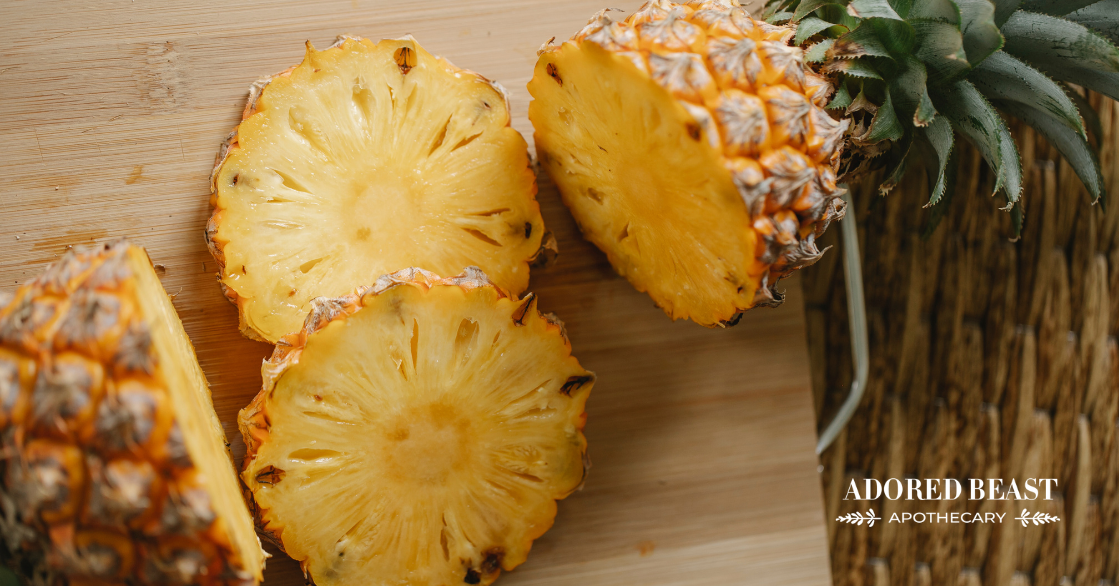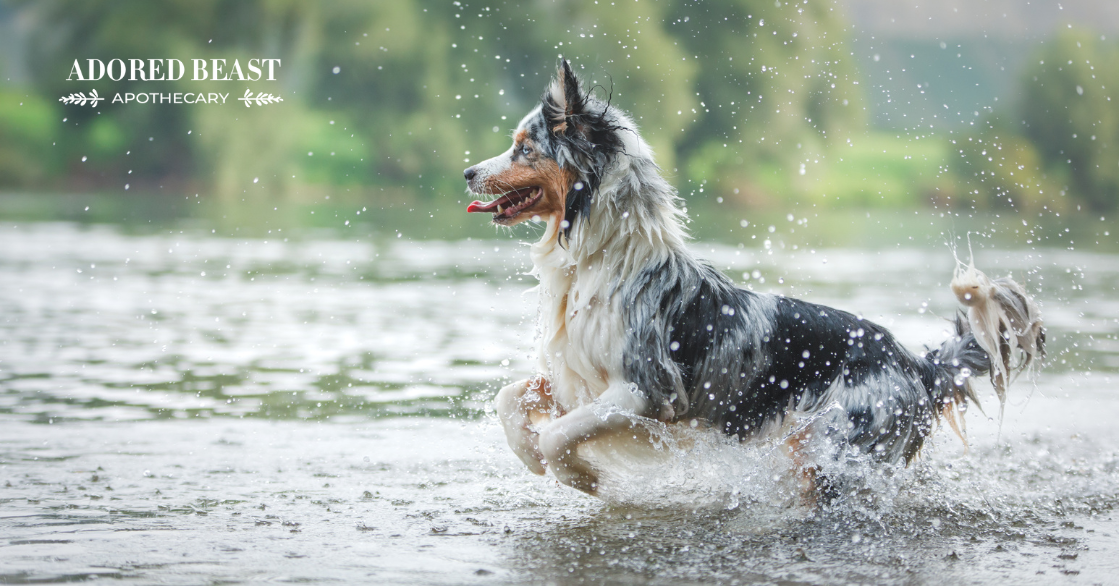There’s nothing quite like cutting into a pineapple and having a bite and being overwhelmed with flavour! When you’re lucky enough to pick the perfect one, it’s like you’ve hit the jackpot!
Pineapple is a tropical delight that many of us enjoy, but can our canine companions safely indulge in this juicy fruit? Can dogs eat pineapple, and if so, are there certain things to keep in mind when sharing?
In this blog, we’ll explore the benefits of and things to remember when it comes to feeding pineapple to dogs. We’ve also got some tips on how to share it safely, plus a simple DIY treat recipe that your dog will love!
Can Dogs Eat Pineapple?
Can dogs eat pineapple? Yes! A simple pineapple is actually a powerhouse of nutrients that can benefit your dog’s health. Here’s what makes pineapple a good snacking option:
- Vitamin C: Pineapple is rich in vitamin C, which supports your dog’s immune system and helps reduce inflammation.
- Manganese: This mineral is essential for healthy bone development and joint function.
- Bromelain: A natural digestive enzyme found in pineapple, bromelain aids digestion and can help reduce inflammation. (That’s why you’ll find it in our Healthy Gut!)
- Fiber: Pineapple contains dietary fiber, which supports healthy digestion and regular bowel movements.
- Antioxidants: Pineapple is loaded with antioxidants that help protect cells from damage and support overall health.
But there are, of course, a few things to keep in mind:
- Sugar Content: Pineapple is naturally high in sugar, so it’s best to offer pineapple in moderation, especially for dogs prone to obesity or diabetes.
- Acidity: The acidity in pineapple can cause stomach upset in some dogs, leading to issues like diarrhea or vomiting. Start with a small amount to see how your dog reacts.
- Choking Hazard: Always remove the tough core and spiky skin of the pineapple, as these parts are difficult to digest and can pose a choking hazard.
And also, some dogs just don’t like it. The first time you try it, give it on its own to see if it’s a hit. If it isn’t, don’t force it – just go with a different fruit!
How to Feed Pineapple to Your Dog
The good news is that dogs can indeed eat pineapple, but there are some important things to consider before sharing this sweet treat with your furry friend. When feeding pineapple to your dog, it’s important to follow these guidelines:
- Choose Fresh Pineapple: Fresh, ripe pineapple is the best option for your dog. Avoid canned pineapple, as it often contains added sugars and preservatives.
- Remove Skin and Core: You don’t want to eat the skin or core, and neither does your dog! Cut away the tough outer skin and core, and only offer the soft, fleshy part of the fruit.
- Serve in Small Pieces: Cut the pineapple into bite-sized chunks that are easy for your dog to chew and digest.
- Moderation is Key: Treat pineapple as an occasional treat rather than a regular part of your dog’s diet.
DIY Pineapple Dog Treat Recipe
Looking for a fun way to incorporate pineapple into your dog’s diet? Try this easy DIY pineapple dog treat recipe – they’re a big hit!
Frozen Pineapple Bites
Ingredients:
- 1 cup fresh pineapple chunks (skin and core removed)
- 1/2 cup plain kefir or goats milk
Instructions:
- Place the pineapple chunks in a blender or food processor and blend until smooth.
- Mix the pineapple puree with the kefir or goats milk in a bowl.
- Spoon the mixture into silicone molds or ice cube trays.
- Freeze for 2-3 hours or until solid.
- Pop out the frozen treats and store them in an airtight container in the freezer.
Tip: You can also add in other fruits (blueberries are our fave) to really up the ante!
Offer your dog one or two of these refreshing treats on a hot day. They’re perfect for cooling down and providing a burst of nutrients!
Pineapple can be a tasty and nutritious treat for dogs when fed properly. Remember to offer it in moderation, avoid the skin and core, and be mindful of your dog’s individual likes and dislikes. With the DIY pineapple treat recipe, you can give your pup a delightful snack that’s both healthy and satisfying. Happy snacking!












